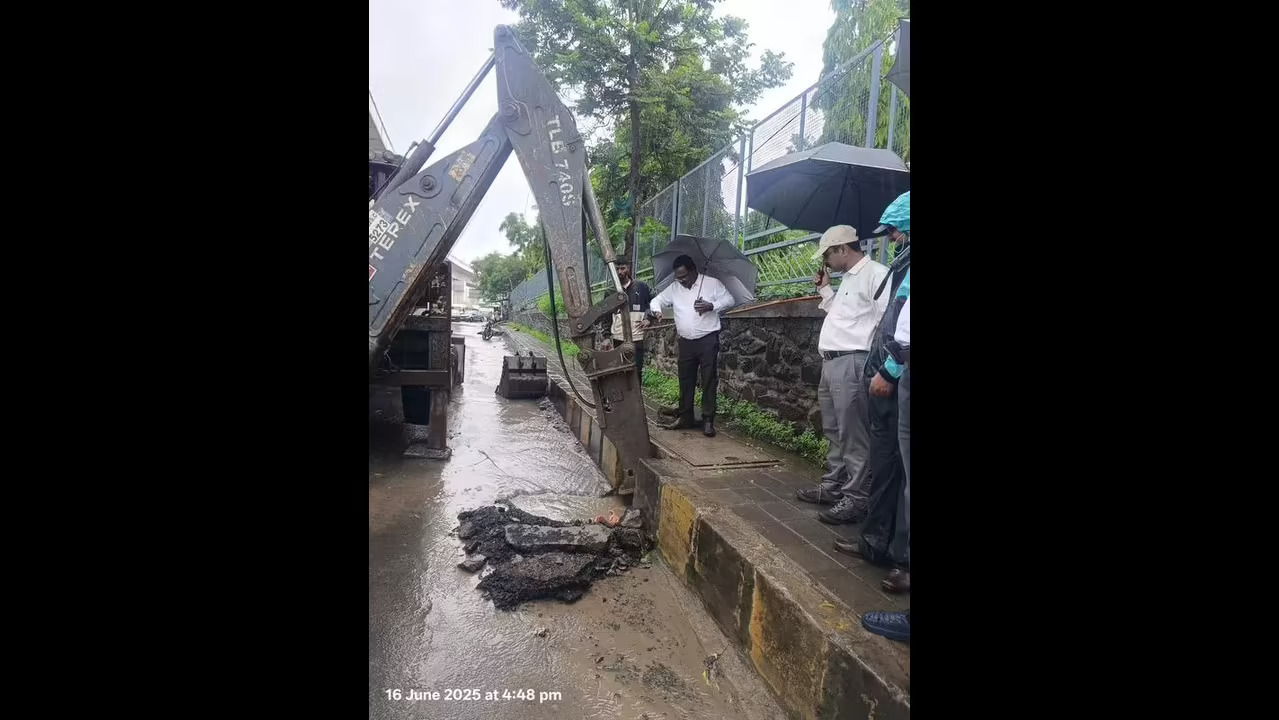Pune prepares to welcome the annual Sant Dnyaneshwar and Sant Tukaram palkhi processions, the city’s planning authority has fast-tracked debris clearance along the religious route intersected by the under-construction Metro Line 3. The Pune Metropolitan Region Development Authority (PMRDA) has declared that the removal of Metro-related debris and construction waste is now in its final phase, aiming for full readiness before lakhs of pilgrims arrive this week.
This proactive clean-up effort follows strong directives from the state leadership to ensure smooth and safe passage for the warkaris, who will walk for days in celebration of the revered saints. The Metro corridor, which runs from Maan-Hinjewadi to Shivajinagar, cuts across a crucial stretch of the palkhi route—particularly between Sancheti Chowk and the Agriculture College flyover—where construction activity and debris had raised safety concerns. According to senior PMRDA officials, the recent acceleration in debris removal was triggered by a warning issued during a high-level review meeting chaired by the state’s deputy chief and Pune guardian minister. In that meeting, officials were cautioned that a penalty of ₹10 crore could be imposed on the Metro concessionaire if the debris and other obstructions were not cleared on time. The urgency reflects both public sentiment and the scale of disruption that ongoing construction could have posed to the religious procession.
The PMRDA’s engineering team has since taken swift action. Metro barricades have been repositioned closer to the viaduct piers to ease vehicular and pedestrian flow, while key stretches of the road have been resurfaced. Potholes have been filled and stormwater drains desilted, in a bid to prevent waterlogging and improve environmental hygiene along the route. Officials supervising the site confirmed that the work is being executed in coordination with various agencies including the Metro project developer and the Maharashtra Industrial Development Corporation (MIDC). Metro sites in Hinjewadi Phase II, particularly in the Pandavnagar area, have seen significant cleanup efforts. Additional inspections have been conducted to ensure structural stability and pedestrian safety across the route.
The momentum towards a clean and organised palkhi route isn’t just limited to Metro debris. Illegal banners, flex hoardings, unauthorised stalls and encroachments along the route have also been systematically removed. During a joint inspection, civic authorities directed repairs to faulty streetlights and rectification of other urban infrastructure shortcomings. The effort also extends to legal enforcement. A notice has been issued to a private construction project for violating building norms, and demolition work has begun on an unauthorised ramp near Metro Station 3. Drainage work in front of Metro Station 2 is being undertaken simultaneously with corridor-wide drain cleaning operations to reduce the risk of flooding.
The ongoing work is being monitored directly by senior officials, including the metropolitan commissioner, under daily review to ensure all interventions are completed within the government’s stipulated timeframe. Earlier, citizens’ groups from Hinjewadi had voiced concerns over poor infrastructure and unaddressed civic grievances. These concerns were raised at a joint coordination meeting held last week, where residents demanded accountability and a time-bound plan for action. Residents have since reported satisfaction with the progress. Beyond being a matter of administrative duty, the cleanup holds broader cultural and emotional significance. The palkhi processions attract lakhs of devotees, many of whom are elderly or walking barefoot. Clean, accessible, and safe passageways are critical for their well-being and for upholding the sanctity of one of Maharashtra’s most time-honoured traditions.
Urban planners and transport experts have noted that the incident is a valuable case study in aligning mega infrastructure projects with traditional civic and cultural needs. They also point out the urgent need for integrating proactive environmental planning into urban transit development, especially in densely populated and spiritually significant zones like Pune. As city authorities scramble to meet deadlines, the situation also raises questions about the broader challenges of balancing urban development with sustainability and cultural continuity. Experts argue that temporary fixes—such as last-minute cleanups—should not be the norm, and that future infrastructure initiatives must account for seasonal and cultural events during project design and execution stages.
For now, however, the convergence of political pressure, civic mobilisation and administrative urgency appears to be delivering tangible results. With structural stability assured and environmental cleanup almost complete, the city is preparing to welcome the palkhi procession in a manner that upholds both reverence and responsibility. Whether these civic gains can be institutionalised for future infrastructure projects remains to be seen, but the present efforts signal a renewed responsiveness in Pune’s urban governance, particularly in moments that blend development with tradition.
Also Read : Dharavi Redevelopment Gets Boost with Stamp Duty Concessions Approved


